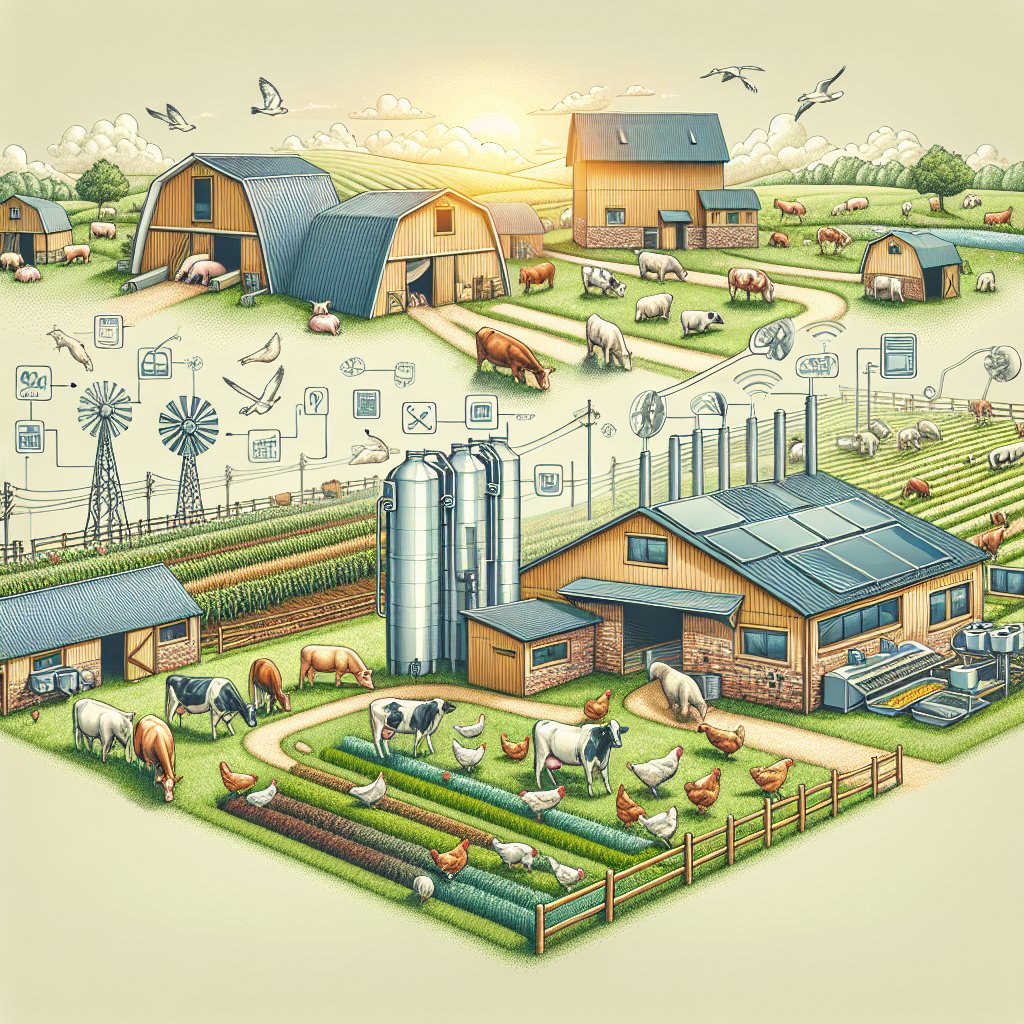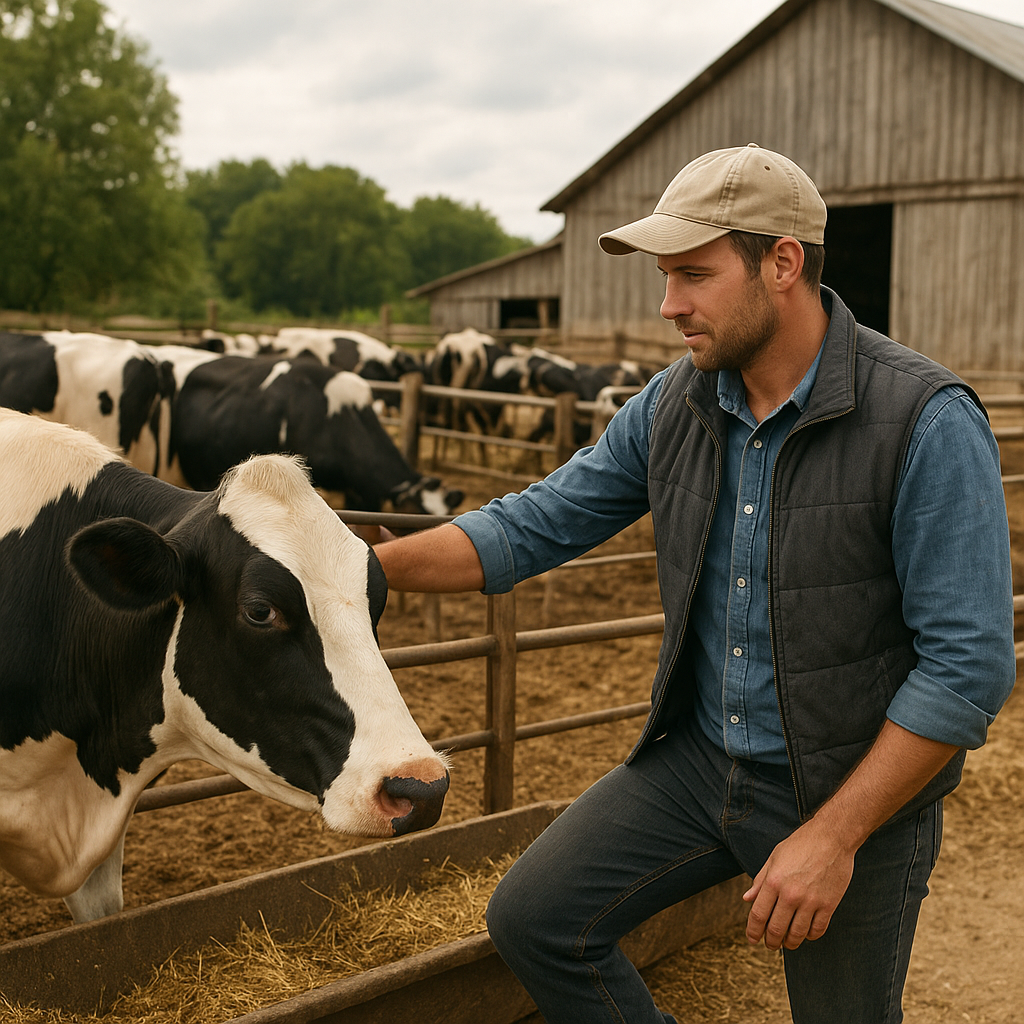The impact of animal welfare on modern livestock farming is a critical issue that shapes the practices and policies of the agricultural industry today. As consumers become increasingly aware of the ethical implications of their food choices, the demand for humane treatment of animals has risen significantly. This article explores the various dimensions of animal welfare in livestock farming, examining its effects on animal health, productivity, consumer preferences, and regulatory frameworks.
Understanding Animal Welfare in Livestock Farming
Animal welfare refers to the well-being of animals under human care, encompassing their physical and mental health, as well as their ability to express natural behaviors. In the context of livestock farming, this concept has gained prominence due to growing concerns about the conditions in which farm animals are raised. The Five Freedoms, a widely accepted framework for assessing animal welfare, includes:
- Freedom from hunger and thirst: Providing access to fresh water and a diet that maintains health and vigor.
- Freedom from discomfort: Ensuring an appropriate environment, including shelter and a comfortable resting area.
- Freedom from pain, injury, or disease: Preventing and rapidly diagnosing and treating medical conditions.
- Freedom to express normal behavior: Providing sufficient space, proper facilities, and company of the animal’s own kind.
- Freedom from fear and distress: Ensuring conditions that avoid mental suffering.
These freedoms serve as a guideline for farmers to create a more humane environment for their livestock. Implementing these principles not only benefits the animals but also has significant implications for the farming industry as a whole.
The Economic Implications of Animal Welfare
Investing in animal welfare can lead to improved economic outcomes for livestock farmers. Research has shown that animals raised in better welfare conditions tend to be healthier, which can result in lower veterinary costs and increased productivity. For instance, pigs and cattle that are not subjected to stress are less likely to suffer from diseases, leading to higher weight gain and better feed conversion ratios.
Moreover, consumers are increasingly willing to pay a premium for products that are certified as humane. This trend has led to the emergence of various labeling schemes that indicate higher welfare standards, such as organic, free-range, and pasture-raised certifications. Farmers who adopt these practices can tap into a growing market segment that prioritizes ethical considerations in their purchasing decisions.
Consumer Preferences and Market Trends
The shift in consumer preferences towards ethically produced food has been profound. Surveys indicate that a significant portion of consumers consider animal welfare when making purchasing decisions. This has prompted retailers and food brands to respond by sourcing products from farms that adhere to higher welfare standards. As a result, livestock farmers are increasingly recognizing the importance of transparency and traceability in their supply chains.
In addition to consumer demand, social media and digital platforms have amplified awareness of animal welfare issues. Videos and images depicting poor conditions in factory farms can quickly go viral, leading to public outcry and calls for change. This has pressured farmers and food producers to adopt more humane practices to maintain their reputations and customer loyalty.
Regulatory Frameworks and Animal Welfare Standards
Governments and international organizations have also taken steps to address animal welfare in livestock farming. Various regulations and guidelines have been established to ensure that animals are treated humanely throughout their lives. In the European Union, for example, strict animal welfare laws govern the treatment of livestock, including requirements for housing, transportation, and slaughter practices.
In the United States, the Animal Welfare Act provides a framework for the humane treatment of animals, although its coverage of farm animals is limited compared to pets and laboratory animals. Advocacy groups continue to push for stronger regulations and enforcement to protect livestock from inhumane practices.
Challenges in Implementing Animal Welfare Standards
Despite the positive trends towards improved animal welfare, challenges remain in implementing these standards across the industry. Smaller farms may struggle to afford the necessary investments in infrastructure and training to meet higher welfare requirements. Additionally, there is often a lack of uniformity in welfare standards, leading to confusion among consumers and farmers alike.
Furthermore, the balance between animal welfare and economic viability can be delicate. Farmers must navigate the complexities of maintaining profitability while adhering to higher welfare standards. This often requires innovative approaches to farming practices, such as integrating technology and sustainable methods to enhance both animal welfare and productivity.
The Future of Animal Welfare in Livestock Farming
The future of animal welfare in livestock farming is likely to be shaped by ongoing advancements in technology, consumer advocacy, and regulatory changes. Innovations such as precision farming, which utilizes data analytics and automation, can help farmers monitor animal health and welfare more effectively. This technology can lead to better management practices that prioritize the well-being of livestock while also improving efficiency.
As the conversation around animal welfare continues to evolve, it is essential for all stakeholders—farmers, consumers, regulators, and advocacy groups—to engage in dialogue and collaboration. By working together, they can create a more sustainable and humane livestock farming system that benefits animals, farmers, and society as a whole.
Conclusion
The impact of animal welfare on modern livestock farming is profound and multifaceted. As awareness of ethical issues surrounding food production grows, the industry must adapt to meet the changing expectations of consumers and regulatory bodies. By prioritizing animal welfare, farmers can not only enhance the quality of life for their livestock but also improve their economic prospects and contribute to a more sustainable agricultural system.




